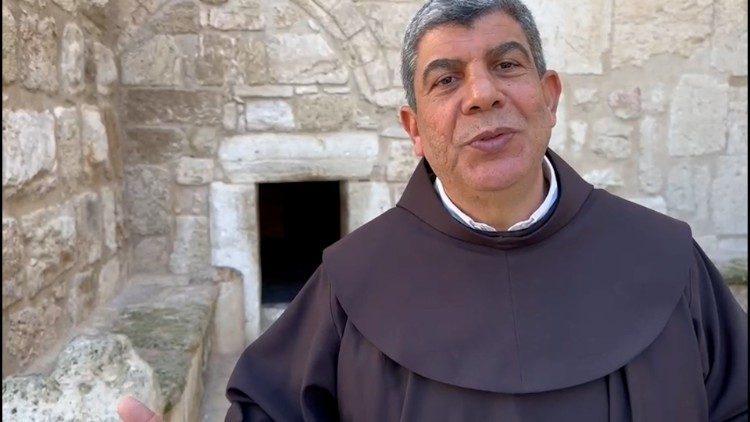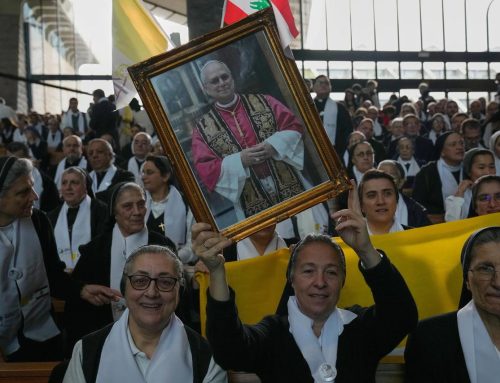“We have reached almost 30,000 dead and more than 60,000 wounded. There have been 40,000 children orphaned and 10,000 children killed.”
Father Ibrahim Faltas, the Vicar of the Custody of the Holy Land in Jerusalem, shared these horrific details since the start of the Israel-Hamas war, in an interview with Vatican News’ Federico Piana.
As this month marked 100 days of the war, the Franciscan Friar also drew attention to the suffering in the West Bank, where “the bodies collected so far have been 400, while the wounded have exceeded 10,000,” not to mention “the thousands of arrests and the destruction that reigns everywhere.”
Local Church’s fear
The fear of the local Church, Fr. Faltas suggested, is that the dramatic events in the Holy Land could trigger a “third world war.”
“Look at what is happening,” he exhorted, “in southern Lebanon, hit by bombings, and in Yemen, where Houthi rebels have engaged in reprisals against foreign ships.”
Fr. Faltas does not hide his astonishment and indignation for world leaders, some of whom remain silent in the face of all this.
“So far, we have not heard them raise their voices to call for a ceasefire, as Pope Francis has done, who has this war in his heart,” said Fr. Faltas.
‘These people have nothing’
In Gaza, the Vicar explained, the entire Christian community is barricaded in two churches: 600 faithful in the Latin parish of the Holy Family and 200 faithful in the Greek Orthodox Church.
Father Faltas decries that the people of Gaza “have nothing: there is no water, no food, no possibility of communicating.”
The Church, he reaffirmed, “is doing all it can to get basic necessities to them.” He shared his “dream” whereby Gaza’s wounded children could arrive in Italy for treatment and perhaps be saved from an otherwise almost certain death.
Two peoples, two States
Many children, he denounced, “are still under the rubble. Where is the conscience of the whole world? Where are the powerful of the world? Everyone sees this tragedy; it is before their eyes.”
Father Faltas observed that international politicians have proposed “the ‘two peoples, two-State’ solution,” which, he said, “also finds some consensus in Israel.”
Given this premise, he said, “the time has come for it to be put into practice.”
“For in the Holy Land,” he continued, “no one is well: neither the Israelis nor the Palestinians.”






